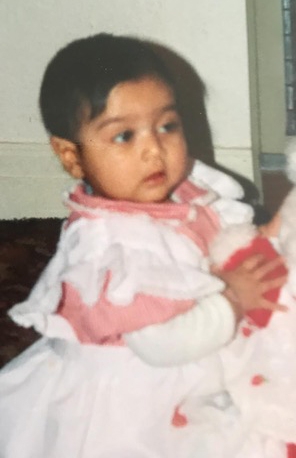The family of a young woman with a rare blood type who is in desperate need of a liver transplant are urging more people in the black, Asian and minority ethnic (BAME) community to become organ donors.
Sunaina Paul, 31, from Bearwood in Birmingham, was born with biliary atresia, a rare liver disease which causes bile ducts in the liver, used to aid digestion and carry waste products to the intestines, to become blocked.

The trapped bile causes liver damage and cirrhosis – scarring of the liver – which eventually leads to liver failure.
Miss Paul, who is the eldest of 11 grandchildren, has spent her life in and out of hospital but her condition worsened in March, when she had to give up her job in a bank, and she has deteriorated rapidly since June, causing doctors to prioritise her as ‘super-urgent’ on the liver transplant list.
Miss Paul, who is British-Punjabi, has a rare blood type, group B, and needs a whole liver transplant from someone within the BAME community.
Organ transplants from people within the black, Asian and minority ethnic community made up only seven per cent of deceased organ donations in the UK in 2017 to 2018, despite approximately 14 per cent of patients on the liver transplant list being from the BAME community, according to an NHS Blood and Transplant report.
Sianne Paul, Sunaina’s mother who lovingly calls her daughter ‘Snay’, said: “Our aim in telling Sunaina’s story is to raise awareness of the low percentage of organ donations for this rare blood group, particularly in the black, Asian and minority ethnic community.
“Our lives hang on the generosity of a stranger. We hope to encourage more people to sign up as organ donors and in doing so give hope to young adults like Snay that they have a chance to live.”
Miss Paul, whose name means ‘beautiful eyes’ in Punjabi, had a reconstructive operation at seven weeks old, called the Kasai procedure, which, although not a cure, can improve a baby’s health in the immediate-term.

Her condition makes her prone to infections and she is now on last line of defence antibiotics, which are administered intravenously, after becoming immune to other antibiotics.
If Miss Paul, who spent her 31st birthday in hospital and needs to take the highest strength of pain medication to control bouts of excruciating pain, becomes immune to her current medication, an infection could be life-threatening.
Jaimini Bangerh, Miss Paul’s aunt who describes her niece as a beautiful person, said: “She [Sunaina] has been so incredibly courageous to share her story because it’s so personal and we hope this will help people to see the personal and human side of organ donation.
“If someone donates their organs it can save up to eight lives. Life is one of the most generous gifts that anybody can give and I would just ask people to really consider being an organ donor and have a conversation.”
In England, organ donation currently works on an ‘opt in’ system, meaning people must register to be an organ donor, but, from Spring 2020, the law is changing to an ‘opt out’ approach, meaning consent for organ donation will be assumed when a person dies unless they have made a record of their desire not to donate their organs.
According to the NHS website, around three people a day across the UK die while waiting for an organ transplant.
By Becky Tombs






